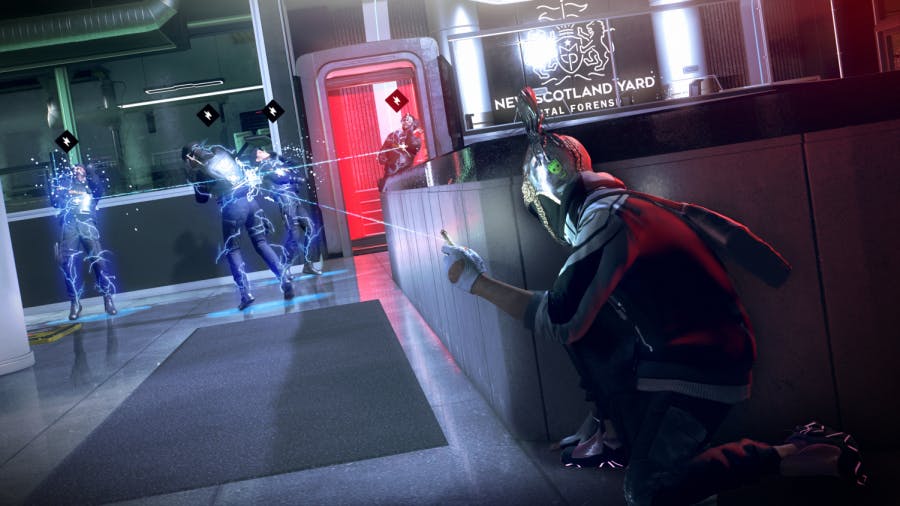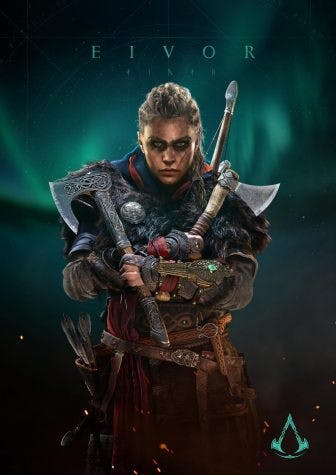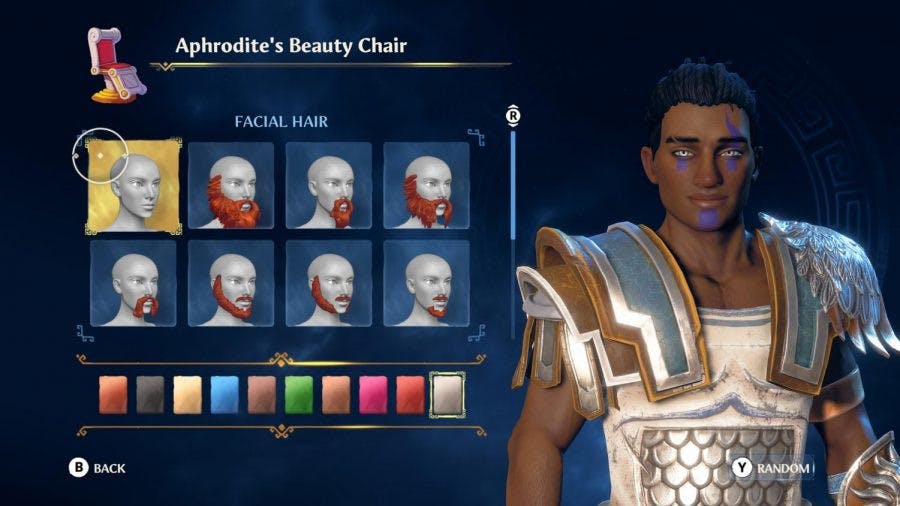Major video game publisher Ubisoft ended 2020 with three games that challenge the gaming industry’s dominant narratives surrounding gender and sexuality, which was a refreshing—though imperfect—reminder of the industry’s progress.
Video games historically emphasize the gender binary and exclude LGBTQIA+ relationships, but they underwent a major shift throughout 2020, with major titles writing queerness into storylines and giving players more freedom than ever to design characters that reflect the true spectrum of gender identity and expression. “Watchdogs: Legion,” “Assassin’s Creed: Valhalla” and “Immortals Fenyx Rising'' were no exception.
Full disclosure: The Cluster received free copies of these games from Ubisoft to review.
Watch Dogs: Legion

Image provided by Ubisoft Entertainment
“Watch Dogs” is an engaging, albeit slightly unpolished, action game with the essence of a stealth game. It tackles timely themes with some depth and attempts to immerse the player in a world of subterfuge and political revolution.
The story centers on political issues such as the rise of fascism and the impact of disinformation on a society beleaguered by social injustice and government oppression. Set in near-future London, the game puts the player in the heart of the resistance movement, allowing players to curate their own team by choosing non-playable characters based on their unique backgrounds and skills.
The game suffers somewhat from its “Grand Theft Auto”-style gameplay, which is so chaotic that it undermines the heavy themes of the otherwise immersive story. The driving and enemy detection mechanics are among the aspects of the game that take away from the seriousness of the overarching themes.
The non-playable characters also contribute to the sense of “Watch Dogs” as disjointed. Many of the NPCs that a player can select for their team or otherwise interact with are described as queer when the player chooses to learn more about them, which is a good starting place for greater inclusion. However, that queerness seems added to backstories like a decoration to a room; it doesn’t seem to affect anything about the characters’ motivations or experiences.
This depiction of LGBTQIA+ identity presents a complex issue. On one hand, it’s uplifting to see queer characters who are allowed to be more than their queerness during a time when media tend to either neglect LGBTQIA+ folks or reduce them to nothing more than their identities. But “Watch Dogs'' goes a little too far in that direction, erasing the way that queerness impacts LGBTQIA+ people’s lives. The game takes place during a fascist takeover fraught with social injustice, but there’s no explanation whatsoever of what it might be like to inhabit a queer body within that political landscape.
Sure, it could be argued that realism isn’t necessarily the point of “Watch Dogs,” but when other timely topics like the rise of fascism and proliferation of disinformation are handled in-depth, it’s disappointing to see a watered-down version of queerness just thrown in for some spice.
That lack of depth is not just a problem when it comes to LGBTQIA+ characters, either; all of the backstory elements feel like an afterthought. The NPCs don’t feel terribly unique even though they are described as such. It’s another one of the elements that precludes the immersibility that the game teases. Still, “Watch Dogs: Legion” is a fun, replayable game that’s fast-paced and runs well. Fans of the action genre will appreciate this title.
Rating: 7/10
Assassin’s Creed: Valhalla

Artwork provided by Ubisoft Entertainment
“Assassin’s Creed” is probably one of the most stereotypical role-playing game series most people can think of: it’s fast-paced, violent and cathartic. However, the franchise has actually stood out for its meaningful queer representation, most notably with the inclusion of a canonically trans character in "Assassin's Creed Syndicate."
“Valhalla” includes queer themes, too: the player character, Eivor, can be played as a man, a woman or a person who sometimes presents as male and sometimes as female. Even better, the genderfluid option is the canon, recommended way to play. Eivor’s genderfluidity is a simple, effective measure at including gender diversity in the industry, and it works.
Gender and sexuality don’t play a major role in the game no matter which version of Eivor the player chooses to control. Regardless of gender, Eivor is a Viking warrior traveling from their Nordic homeland to build a new community in England after their father lost the family’s land. That journey takes place in a visually-impressive, massive open world that feels alive—although the Nordic setting may have a visual edge over the British setting—with side quests along the way. Unlike “Watch Dogs,” “Valhalla” doesn’t emphasize stealth gameplay, focusing instead on classic RPG-style combat.
“Assassin’s Creed: Valhalla” is an immersive, lengthy game with plenty to do. It’s a great addition to the franchise and to the modern action-RPG lineup that stands out with impressive graphics and enjoyable gameplay.
Rating: 9/10
Immortals Fenyx Rising

Image provided by Ubisoft Entertainment
In this light-hearted, open-world RPG inspired by Greek mythology, players create and play as their own version of Greek soldier Fenyx. At the start of the game, Fenyx finds herself shipwrecked on the Golden Isle. There, she becomes entrenched in the world of the gods whose stories she has spun for years, taking on a quest to imprison Typhon, a Titan who has transfigured the gods into animals. The environment is light and fun, and although Ubisoft casts Fenyx as a woman, the game allows players to create their own version of Fenyx with a character creation tool that is simple yet (mostly) inclusive.
Players choose a body type rather than a gender and aren’t locked out of customization options based on what they pick. A player can choose the feminine body type, for example, and still apply facial hair. The game also offers a variety of skin tones and hairstyles that reflect a range of races and ethnicities, as well as fun colors like blue.
However, there aren’t options for androgynous body types, and while the player can choose a deep or high voice regardless of the body type they select, the deeper voice assigns Fenyx he/him pronouns and the higher voice assigns she/her pronouns. There’s no option to use gender-neutral pronouns or to choose an ambiguous voice.
In terms of gameplay, “Immortals Fenyx Rising” offers a challenging yet casual experience with immersive imagery and a humorous vibe. The art is beautiful, the landscape vast and the puzzles just frustrating enough to be interesting but not so complicated that they’re rage-worthy.
The real drawbacks involve limits that Ubisoft places on the open-world concept. The game strongly encourages players to make certain choices and complete the story in a certain order by capping Fenyx’s abilities or knowledge to prevent her from accessing areas she shouldn’t yet. That’s obviously a common practice in games, but it does raise questions about the categorization of “Immortals” as “open-world.” It’s also easy to find exactly where Fenyx is meant to go, which precludes the sense of exploration expected in an open-world game. For those who find true open-world games overwhelming, though, this could be a blessing in disguise.
As the game progresses, however, any limits on Fenyx’s ability disappear completely, which actually becomes another flaw. Fenyx becomes extremely powerful to the point where combat, while inordinately difficult in earlier stages, becomes too easy.
While unbalanced, “Immortals Fenyx Rising” offers casual gameplay with a sense of humor and clever references to Greek mythos. It’s a great way to kill time, but it’s probably not at the top of anyone’s “Best of 2020” list.
Rating: 6/10
Ian Henshaw contributed reporting.




